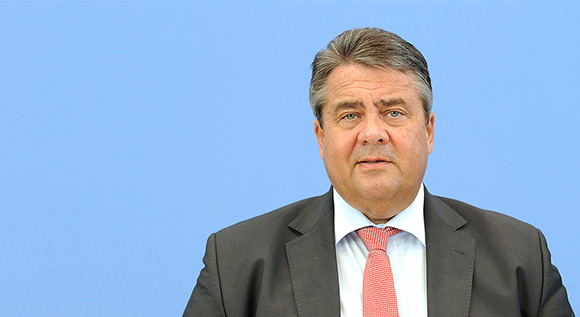Germany and the European Commission agree on an energy package creating a reliable basis on which companies can plan for the future
Following intensive discussions, Federal Minister for Economic Affairs Sigmar Gabriel and EU Commissioner Margrethe Vestager have agreed on an energy package.
 Sigmar Gabriel, Federal Minister for Economic Affairs making a statement during the Federal Press Conference on 30 August 2016. © BPK
Sigmar Gabriel, Federal Minister for Economic Affairs making a statement during the Federal Press Conference on 30 August 2016. © BPK
Following intensive discussions at the end of August, Minister Gabriel and EU Commissioner of Competition Vestager have agreed on an energy package. The package concerns the Promotion Act for the Combined Heat and Power Act (CHP), the Electricity Market Act, and the 2017 Renewable Energy Sources Act – and contains answers to the question as to how the Acts can be made compatible with European state aid rules.
The arrangements between the Federal Ministry for Economic Affairs and Energy and the European Commission concern the following areas:
- lifting EEG surcharges for self-supply from existing installations,
- relief for energy-intensive industries regarding the CHP surcharge,
- auctioning of support for certain CHP installations,
- pilot project for technology-neutral auctions under the Renewable Energy Sources Act,
- capacity reserve and
- grid reserve.
The main contents of the agreement and its planned implementation into national law can be found here (in German only).
Intensive and constructive talks
Federal Minister for Economic Affairs and Energy Sigmar Gabriel said: “This agreement creates a basis on which companies can reliably plan for the future.” This is of course particularly true for the funding-related section of the CHP Act and the grandfathering clauses for companies supplying their own electricity. It will ensure that Germany’s electricity-intensive companies can stay competitive and will thus safeguard jobs and high-quality employment in Germany.”
The German government believes that the review of the planned acts can now be concluded. The acts are currently still undergoing the formal decision-making process of the European Commission.

